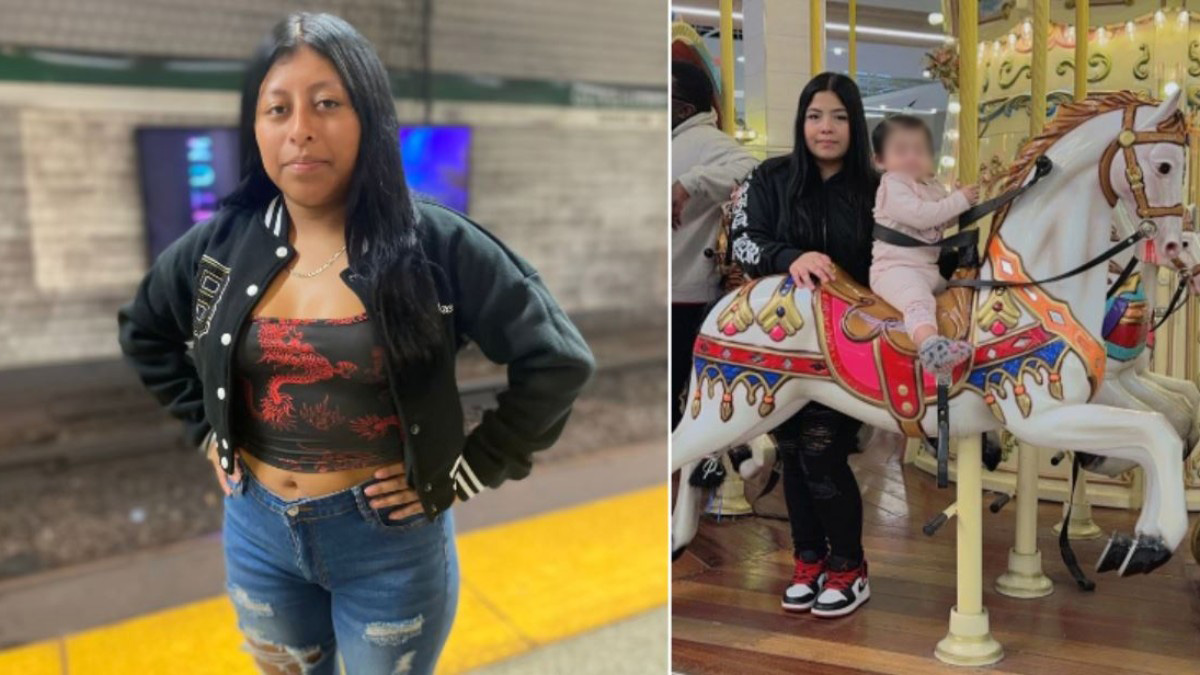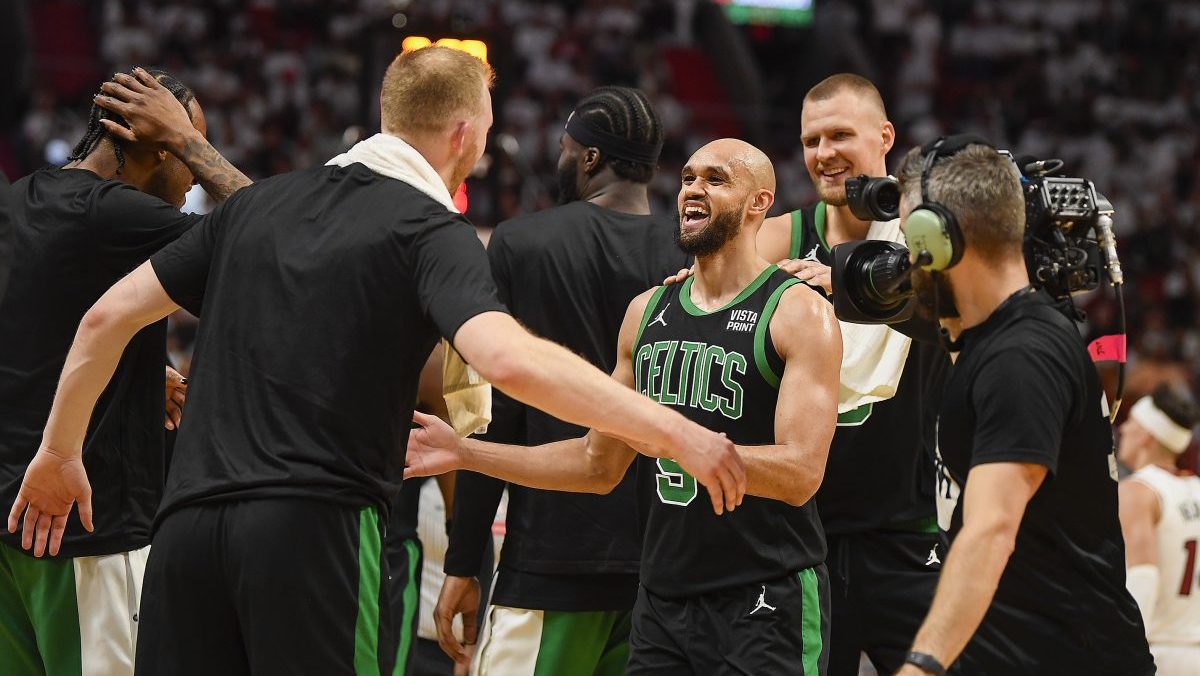(NECN: Peter Howe, Boston) In the cozy living room of her little Cape on a quiet street in Boston's Mattapan neighborhood, Germain Harper remembers the awful days of 2008 and 2009 when she and her husband, Derrick, feared they'd lose their home.
"We've worked all of these years, trying to build a life, and we bought a home to have something to leave our children, and are going to lose it? You know, that that was the stress,'' recalled Germain Harper, a hospital X-ray technician in Boston.
What happened to the Harpers happened to so many thousands of New Englanders during the housing-market bubble. With the value of the home they'd bought for $125,000 in 1999 soaring, and with mortgage lender Countrywide pushing easy credit, the Harpers refinanced at $250,000 in 2004, $276,000 the next year.
"We renovated the bathrooms and paid off our two automobiles, that's what we did,'' said Derrick Harper, a clinical social worker and father of four and grandfather of four.
But then Derrick ran into tough times with the agency that was his employer. "They were late paying me, up to three months at a time. Obviously, we couldn't keep up with it. Then that contract was cut.''
And with a mortgage that re-set from $1,100 to $2,400 a month when adjustable rates spiked upward, trouble mounted. "My youngest was going into college, his sophomore year. He had to sit out from his college, and we put him in a junior college where he took two courses just to keep him going, because we owed that bill.''
By 2008, the Harpers, who met in church in Somerville in 1977, had their home foreclosed by Countrywide successor Bank of America.
Local
"They send you all the notices you're in foreclosure. Once you're in foreclosure, I got 10 phone calls a day with them trying to ask me something, and every time, you've got to give this big financial history.''
It was an emotionally grueling time for the whole family. "We're praying the whole time: 'Lord, work this out,' '' said Derrick, who teaches Sunday school at the same church where he and Germain met, where she sings in the choir. "How, I couldn't see. I mean, I really didn't know how this was going to work out.''
But a little over three months ago, it did work out, with help from a Roxbury organization called Boston Community Capital.
And it wasn't charity. It was all business.
The Harpers are among 175 Massachusetts families and homeowners quietly helped by BCC's "Stabilizing Urban Neighborhoods" initiative, which connects investors looking to make money with Massachusetts residents -- and bankers -- looking to escape foreclosure. (For now, the program is limited to the Bay State only.)
Elyse Cherry, BCC's chief executive, said, "It really is a first, and I think in this case, at this time, only initiative in the country aimed at keeping people in their homes'' while working out foreclosed loans.
How it works: Homeowners seeking help have to be in or nearing foreclosure, and typically owing 80 to 100 percent more than their home's now worth. But if they have regular, steady income from a job or pension plan or disability coverage, BCC will then go to their bank and negotiate to buy the mortgage from the bank, typically at a 50 percent discount from the principal balance.
Why do banks agree to do this?
"They're not going to get anybody to pay a loan that's at the old bubble price, right? The only thing they can get today is today's price,'' Cherry said. Given that banks are holding mortgages on homes whose value may take decades, if ever, to come back to mid-2000s bubble valuations, 50 cents on the dollar today may well be more appealing than a very uncertain $1 on the dollar that may take years, if it ever comes.
BCC then writes the qualifying borrower a new mortgage that's normally around 42 percent less expensive for them to service month to month, with a lower interest rate and faster payback.
"The lender then avoids all the cost associated with foreclosure, they avoid the cost associated with eviction, it's better for the neighborhood and better for the homeowners,'' Cherry said, "so we really view it as a win all the way around.''
That includes for the investors who put in the money that BCC uses to buy the old mortgages and lend on the new ones - like investors with Julie Johnson's Fresh Pond Capital, a $60 million Financial District money management firm affiliated with Reynders, McVeign Capital Management, which has $725 million under direct management and advises trust officers on some $4 billion in investments.
"Our clients have a specific interest in aligning their investments with their values,'' Johnson said of her Fresh Pond clients. "How much is enough to hold? How much is enough to give away? And how much is enough to find interesting investments that are in our community? That's where Boston Community Capital comes in as a great partner. We've known them for decades now.''
Since 1985, Boston Community Capital has invested, on behalf of foundations and high-net-worth individuals and others including Fresh Pond and Reynders clients, more than $650 million in low-income-neighborhood housing, commercial real estate, schools and child-care centers.
One critical part of Boston Community Capital’s funding model: As a federally designated Community Development Entity, it’s a big recipient of “New Market Tax Credits,” a program established by Congress in December 2000 and run by the Treasury Department, through which high-net-worth individual investors and corporate investors can get a credit against their income taxes for investment in CDE’s like Boston Community Capital. Investors who put $1 million into BCC for seven years to fund its work in inner-city development projects can subtract typically $390,000 from their federal tax obligation over that seven-year period, even before accounting any return they get from the investment. BCC has received a total of $428 million of the tax credits to pass on to its investors, including $75 million in late February.
As the economy melted down in 2009 and failing sub-prime mortgages became a national and international crisis, Johnson said, "We knew we also wanted to get money into the community to stop the foreclosures, but how do you do that? Boston Community Capital were the ones who figured out a model.''
While Fresh Pond's investors tend to act with social consciousness and purpose, Johnson made clear they are also looking to make money - and the 4.25 percent they get paid on the Boston Community Capital SUN mortgages, held as one long-term piece of the fixed-income part of their stock-and-bond portfolios, compares very favorably to Treasury bills and money market funds and other fixed-income investments.
"Four and a quarter percent is a great yield right now, and it's not that we're chasing yield and investing in junk lending or practices,'' Johnson said. "It's a good financial investment -- and a good community investment.''
According to Cherry, of the 175 homeowners BCC's signed on over the last year or so, only 1 is now headed back into foreclosure. That's an indication BCC is engaged in serious business.
"We will go ahead and foreclose because we have borrowed the money to make these loans, and we need to repay our investors, so we can't simply turn a blind eye to somebody who isn't paying -- but we really only have one right now,'' Cherry said.
But at the same time, Cherry said, that less-than-0.5 percent re-default rate is an indication of how carefully BCC chooses to whom it will lend in the first place.
"We require that people send us a lot of documents, so we need tax returns, we need bank statements, we need evidence of salary payment or whatever the other steady income is,'' Cherry said.
BCC also does the kind of moral-character evaluation - looking past a bad credit score to determine if people with adequate income are clearly committed and serious about repaying their mortgage - that banks did for decades before the no-documentation "liars' loans" craziness of the mid-2000s, when the name of the game was maximizing loans and then dumping them into tradable Wall Street securities.
"We really in some sense have just reinvented the community bank,'' Cherry said. "Our clients are really everybody's neighbors. We have mechanics, and bus drivers and school secretaries … ''
For all the success that Boston Community Capital has been having so far, what's hard to say: Just how many people across the country might be able to be helped by this model? And just how much wealth is there out there that's willing -- or able -- to be invested in helping them this way?
But what is clear: When it does happen, it can be not just a savvy investment, but an honest-to-God blessing.
"All we do,'' Derrick Harper said, "is pay mortgage and pay school. But that's OK. We can do it. I mean, now we know we can do it. And that's what they've done for us, Boston Community Capital. That's why I say God used them to bless us.''
Looking on at her husband with a smile, Germain Harper adds: "We can work, we can pay the mortgage, and we can see the end, the paying off of the house. Being able to have something to leave for the children.''
For more information, go to www.bostoncommunitycapital.org



